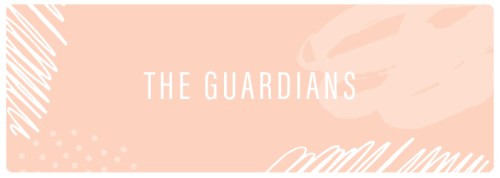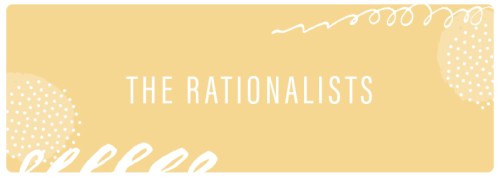The top relationship fear for each Myers-Briggs personality type
Check out your top relationship deal breaker according to your Myers-Briggs personality type. This way, you can address the isssue head-on.

Wanting to fall in love with a partner who makes life more exciting is a tale as old as time. There’s nothing better than that dreamy, near euphoric early phase of a relationship, when each date brings about new fantasies about what could be. That said, this stage is also fraught with moments of unease and hesitation. Everyone has a relationship deal breaker, after all, but knowing exactly what it is can be helpful for parsing how you really feel about a new fling.
It’s common to approach relationships with fears and baggage—and some of these things might just be part of your wiring. That’s where your Myers-Briggs personality type can come into play by illuminating your most pressing relationship hang-up. (Don’t know what your type is? Read this first!) Find out what the top issue is for your type so you can address it head-on before the problem gets the chance to compromise your romantic bliss.
Check out your top relationship issue, according to your Myers-Briggs personality type.

ISFJ: Pursuing a relationship when your partner isn’t fully committed
You’re not a casual dater, so you’re always looking for a relationship that will go the distance toward marriage. However, while you may well be strategic with your dates, you often desire full commitment before your partner does. Just remember that it’s unreasonable to expect to be perfectly synched with your companion in terms of commitment. And it’s A-okay for your timelines to be marginally different, so long as you ultimately end up in the same place. Give it some time before you cut out (or spark a premature DTR convo).
ESFJ: Realizing your partner isn’t being fully honest
Since you tend to get attached pretty quickly, your big fear is finding out your partner isn’t who they claim after you’re already emotionally invested in the relationship. From a self-preservation POV, this reality makes clean breaks super-difficult to make. So, it’s important to listen to actions, not just words. Make sure your potential partner’s stories add up and behaviors don’t leave room for questions.
ISTJ: Committing to a person who has different long-term goals
You lack the FOMO gene and really just want to enjoy your life while you’re young. Later on though—like when you’re settled in your career and your friends are settling down—you’ll fully commit. You worry most you’ll pursue a relationship with someone who just wants to be free, or who doesn’t want to settle down for the foreseeable future. With your big heart, you may have struggle detaching.
ESTJ: Realizing your relationship is getting in the way of career
You’re practical, and you place career above all else. You’d love to have a partner, but you’re also reluctant to make a commitment that might get in the way of your success. Just remember that there’s always a trade-off. If you don’t devote any time to your personal life, while you’re busy climbing the ladder, your friends may well be settling down. Be honest with yourself about about priorities and where a partner falls on the list.

ESFP: Falling in love, getting bored, and wanting out
You’re a free spirit who likes to have fun, but you also have a big heart. You’re apt to fall in love and then suddenly fall out of it. Even when you meet someone you can’t get enough of, when things start to become more serious, you’re afraid you’ll wake up one morning and want to walk away, thus hurting the person you’ve earnestly grown to care for. Just remember, you can’t progress in a relationship without that vulnerability and risk. The chance of long-term happiness is worthwhile.
ISTP: Entering into a relationship with too much togetherness
You live life on your own terms, and you don’t like the idea of checking in with a partner every time you want to go on a solo hike or a trip with your friends. You worry that a relationship will strip you of your independence, so much so that you sometimes avoid dating. Just remember, many people are embracing non-traditional relationship dynamics. It’s perfectly possible for two independent people to make their own couple “rules.”
ESTP: Being in a relationship that keeps you from other desires
When you love someone, you’re afraid that love won’t be enough. You’re always on the go—traveling, dinner with friends, hobbies galore, etc. Your biggest fear is that having a long-term partner will prevent you from doing something (anything) that you really want to do (someday). However, that fear is not grounded in reality. Realize that if it’s truly that important, most partners will support you in your endeavors.
ISFP: Committing to someone someone who’s controlling
With individuality and autonomy highly valued, you’re very aware of controlling personalities. Your biggest fear is falling for someone with whom you feel incredible potential and safety, only to discover they actually want to limit your freedom—physically, intellectually, or both. Especially if you’ve had a relationship like this in the past, it can be hard to trust again. Try being vocal about your values in a partnership and long-term goals so you can gauge the reaction before you go “all in.” (You have a good intuition, but don’t always follow it. Trust your gut.)

ENFP: Falling in love with novelty, not healthy support
Because you’re drawn to mystery, it’s easy for you to mistake novelty for romantic love. Over time, you start to realize your pattern of chasing the next exciting adventure instead of a healthy partnership. Remember that you thrive in partnerships that are intellectually stimulating, but physically stable and straightforward. If you can’t figure out a partner’s behaviors, said relationship is likely to engross you for all the wrong reasons.
INFP: Being with someone who stunts your individuality
Love for you means completely knowing your partner and fully accepting who they are without asking them to change their core values. You are prone to seeing the best in people who aren’t right for you, and then engaging in “wishful thinking” about how that relationship will turn out. You actually tend to resist stable partnerships for fear that a predictable partner will rope you into a conventional lifestyle. So, consider letting that person see all of your heart before leaping to judgments about how they’ll react to you. Sometimes the most unexpected people can be the most accepting of your quirks.
ENFJ: Finding a partner who doesn’t understand your needs
You seek committed partners who are affectionate, both physically and verbally. As long as you have that consistency from the person you love, you’ll provide the sun, moon, and stars. Your biggest fear is winding up with someone who gives you everything you want, but only part of the time. (You know yourself; the roller-coaster relationship is not healthy for you.) Make sure that while dating, you feel fulfilled before you lock it down.
INFJ: Committing to a partner who’s not faithful
Sure, you’re a long-term planner, but you’re not necessary careful about whom you commit to. You’re also very private and don’t desire to open up your heart over and over again. As such, you probably only have one or two long-term relationships in you, like for life. You fear committing to someone who won’t stay faithful to your relationship for the long haul, resulting in you having to disentangle your lives in a messy split. After a romantic scar or two, this can sometimes dissuade you from participating in the dating pool. But rest assured: Your intuition and ability to see people for who they are is sharp. With enough experience, you’ll make a smart choice of partner before committing.

INTJ: Falling in love with someone who doesn’t plan you into their life
You’re a fairly low-maintenance partner, primarily looking for a mind mate with whom you can spend quality time, rely upon, and grow together. But your big dating fear is picking someone who won’t plan you into their life; someone who makes plans independently of your wishes and remains wishy-washy about the long-term future. While it’s fine to look for a certain type of partner, you also tend to be hyperaware of red flags and look for reasons to be critical. Relax and let yourself enjoy the relationship. It’s okay for someone to commit slowly, over time.
INTP: Being in a “difficult” relationship
Something you can’t wrap your mind around is fighting and bickering: You want to remain in the honeymoon phase as long as you can, and continually enjoy the best parts of each other’s lives. So you’re quick to detach if a partner is too “difficult.” The issue here is that life is full of problems, complicated life stages, up-and-down moods, etc. If your relationships keep falling apart, ask yourself if you’re being overly idealistic. Or, perhaps you’re not talking openly enough about what a relationship means to you. Think on it.
ENTP: Always feeling like there might be something better out there
As a classic commitment phobe, you’re always worried that, by committing to a serious relationship, you’ll miss out on other opportunities for potentially better prospects. Play the field, but realize you’re more authentically happy when you’re getting to know one person in-depth instead of a bunch of people casually. The sooner you accept that what you’re missing out on isn’t nearly as much as what you’re gaining, you’ll be able to have a fulfilling long-term relationship.
ENTJ: Committing to someone who isn’t committed to self-improvement
You, my friend, have high standards: You value your free time, because you have so little of it, and you like to devote your energy to growth and achievement. So before you dedicate your extra attention to one partner, you’re looking for evidence that they’re striving to be the best version of themselves. While it’s a lofty goal for a partnership, remember that you have a rigid set of expectations that might keep you from meeting someone who makes you both happy and teaches you unexpected life lessons. Have an open mind.
Itching for more Myers-Briggs intel? Here’s the best career path for you and the role you play in any group, according to your MBTI.
Sign Up for Our Daily Newsletter
Get all the latest in wellness, trends, food, fitness, beauty, and more delivered right to your inbox.
Got it, you've been added to our email list.










